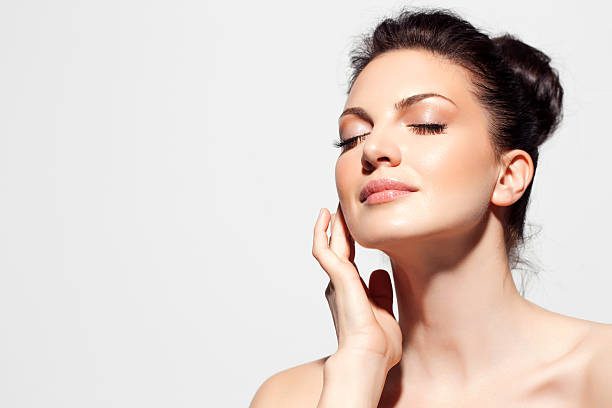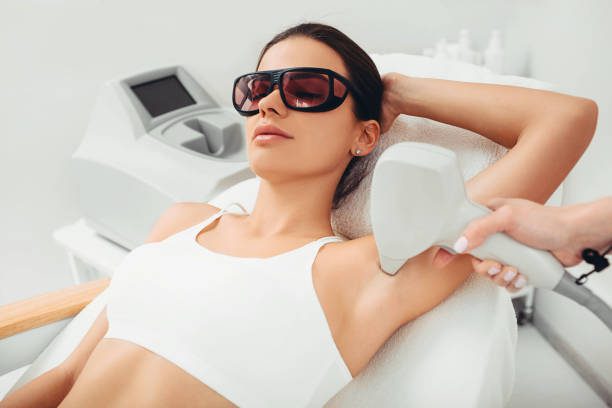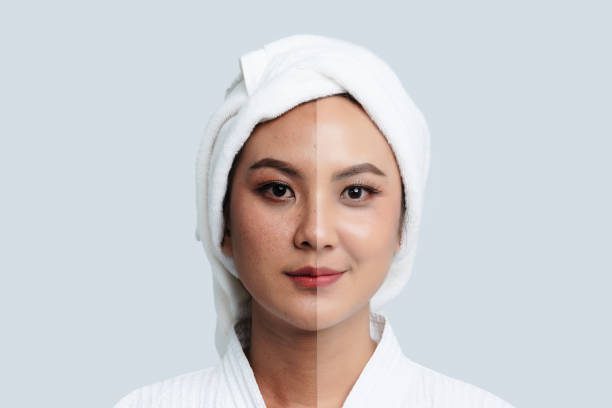Safe & Effective Skin Lightening Treatment
FDA-approved Solutions to Get A Brighter Complexion and An Even Skin Tone!
Long-term sun damage due to exposure, ageing, acne-induced discolouration and melasma and other causes of dark spots on the skin may adversely affect your complexion. Maintaining bright, healthy, glowing skin is also challenging if you are on drugs like tetracyclines or have a cosmetic allergy. Underlying medical conditions like lichen planus pigmentosus or macular amyloidosis may cause uneven skin tone. You are on the right track if you have a patchy complexion and wonder how to restore your flawless and natural skin tone.
Rejuvenate Health’s Skin Lightening treatment helps rejuvenate and brighten the skin tone by effectively treating concerns like pigmentation, age spots, suntan, blemishes, dark spots and acne marks. Let us explore more about what results to expect when top dermatologists perform advanced USFDA-approved skin lightening treatments at Rejuvenate Health.
Rejuvenate Health’s Professional Skin Lightening Solutions:
The dermatologist at Rejuvenate Health will first analyse the skin concern in the specified area that needs treatment and then devise a customised treatment plan as per individual needs. Rejuvenate Health offers the following professional treatments to achieve even and radiant skin tone –
- Laser toning – The laser toning treatment involves using Q- Switched Nd:YAG laser to break down excess melanin pigment in the concerned area. The skin’s immune response helps eliminate the debris. This is an effective treatment, especially for minimising deep pigmentation, for which products are not very effective. It promotes the appearance of regenerated skin that is visibly brighter and lighter in tone.
- Chemical peels – Chemical peels for skin lightening at Rejuvenate Health include skin rejuvenation peels, brightening peels, radiance peels and reviving peels. Dermatologists at Rejuvenate Health use these plant-based natural acids of varying concentrations to treat mild to severe pigmentation concerns. A chemical peel works by gently exfoliating the damaged top layers of the skin and eliminating the build-up of dead cells and melanin. These peels are effective for skin lightening and treating different types of pigmentation, scars, blemishes, sun tanning and dullness to improve the overall skin tone. With chemical peels, one can expect new, radiant, bright, even-toned and healthy skin to appear. Your dermatologist will customise your chemical peel treatment based on the severity and type of pigmentation and the affected area.
What Is The Treatment Procedure?
Here’s what you can expect if you opt for the best skin lightening treatment at Rejuvenate Health:
- A detailed one on one consultation to diagnose the cause, type and severity of pigmentation and assess the target area
- A customised treatment plan that may include stand-alone or combination treatments
- Pre-care guidance
- Quick procedure with zero downtime as per treatment plan with scheduled intervals
- Post-care support with minimal follow-up sessions.
Benefits Of Skin Lightening Treatments
Skin lightening treatment primarily helps in achieving the below-mentioned benefits –
- Reduces uneven skin tone due to premature ageing and improves the complexion.
- Brightens the skin and minimises dullness.
- Enhances the overall appearance of the skin and restores its youthful radiance.
- Reduces visible pigmentation marks and spots, blemishes, acne scars and suntan.
- Removes damaged, dead layer of skin and unveils damage-free rejuvenated skin from beneath.
Why Choose Rejuvenate Health For Skin Lightening Treatment?
Here are the top reasons Rejuvenate Health is the best clinic for advanced Skin lightening treatment –
- Rejuvenate Health is a trusted brand with over 3000 happy clients and an impressive track record of completing 1250 successful skin lightening procedures.
- We have clinics all over West Bengal with state-of-the-art facilities.
- We use the latest USFDA-approved laser technology for performing world-class treatments with scientifically-proven safety and efficacy.
- We have the largest team of 100+ dermatologists with a holistic approach who excel in customising advanced aesthetic treatments using revolutionary technology.
We provide extensive pre and post-care support to minimise risk and optimise results. We have an outstanding 80% client satisfaction rate – the industry’s highest




